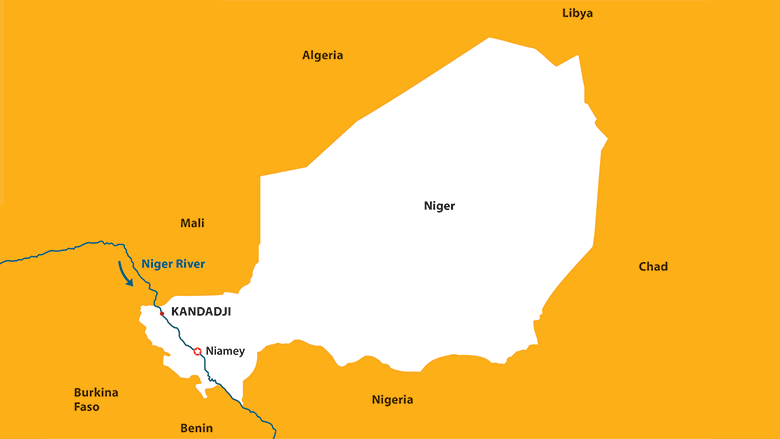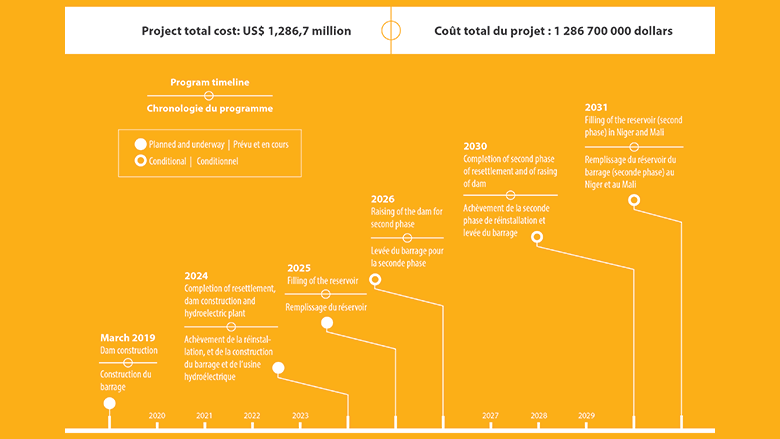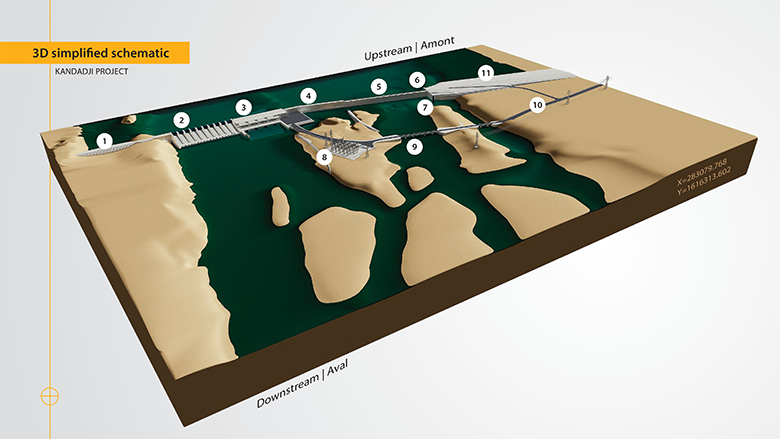Project background
80% of Niger’s labor force is engaged in agriculture and livestock, accounting for 40% of the GDP. However, productivity and yields are low due to limited use of inputs and lack of infrastructure, including irrigation and roads. This large, landlocked, mostly desert country in Africa’s Sahel region is crossed by the Niger River, on which depend a vast majority of the rural population. However, this population is increasingly facing the effects of climate change, including recurrent droughts and floods, as well as chronic food and power shortages.
Located 189km northwest of the capital city Niamey, the Kandadji dam project, aims to increase food production, generate more electricity, boost jobs, and create economic opportunities for families and communities in the Sahel.
LACK OF ELECTRICITY ACCESS, WATER SCARCITY AND FOOD INSECURITY
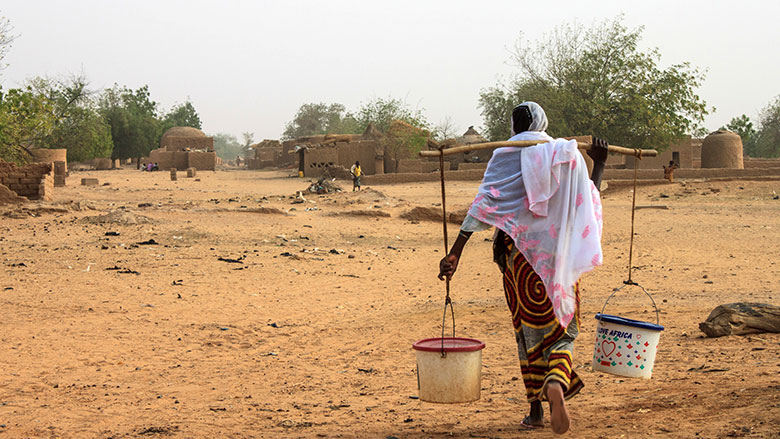
Niger has one of the lowest electrification rates in the world, at 10% of the population (less than 1% in rural areas). Huge investments are needed to increase access. The country is also ranked 189 out of 189 on UNDP’s Human Development Index and 3rd to last on the World Bank Human Capital index.
Extreme poverty remains very high, at an estimated 41.5% in 2019, affecting more than 9 million people. It also faces many challenges to increase access to sanitation and potable water, particularly in rural areas where access to water is 44.2% and 7% for sanitation. 42% of children are stunted in Niger, and so at risk of cognitive and physical limitations that can last a lifetime. According to the Food and Agriculture Organization, 51.7% of the population (11.1 million people) suffers from severe food insecurity (2016-2018), whereas the average for Sub-Saharan Africa is 25.1%.
EXPECTED BENEFITS FOR PEOPLE IN NIGER
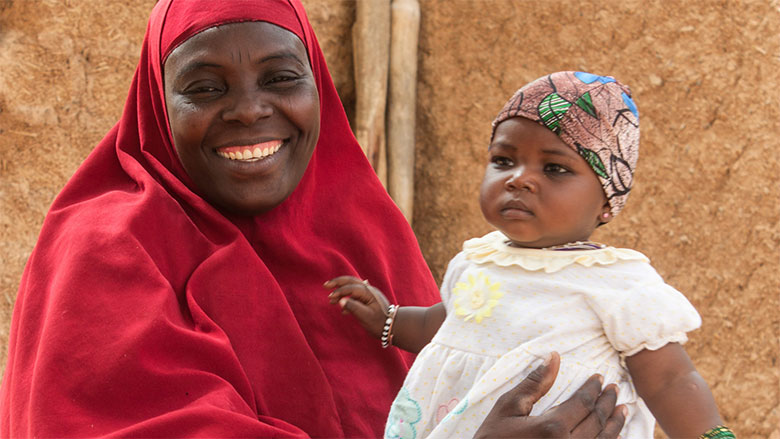
The Kandadji Project is expected to support poverty alleviation efforts by bringing electricity to homes and businesses, and by improving the management of the Niger River. Better basin management will enhance environmental flows in the dry season and ensure a reliable municipal water supply for Niamey.
The Project is part of the larger Niger Basin Water Resources Development and Sustainable Ecosystems Management Program. The dam and reservoir will support irrigation of up to 45,000 hectares of land, which will increase agricultural production, boost food security, and improve living conditions downstream.
It will also strengthen Niger’s energy security through the production of electricity from the hydropower plant. In addition, it will supply clean and safe drinking water to those living nearby and create jobs – especially for young people and women – by providing opportunities for people to learn and develop new skills and supporting livelihoods.
